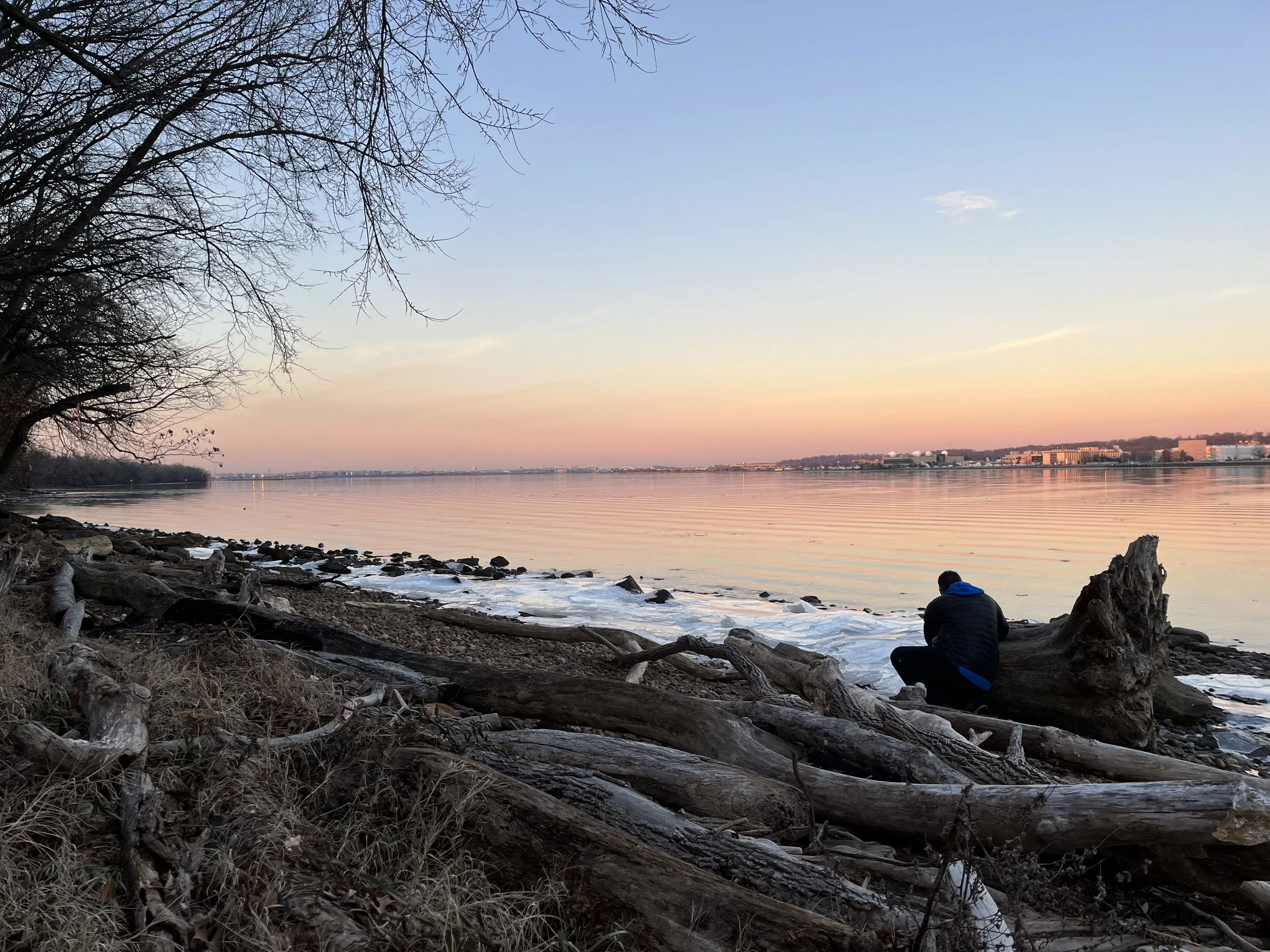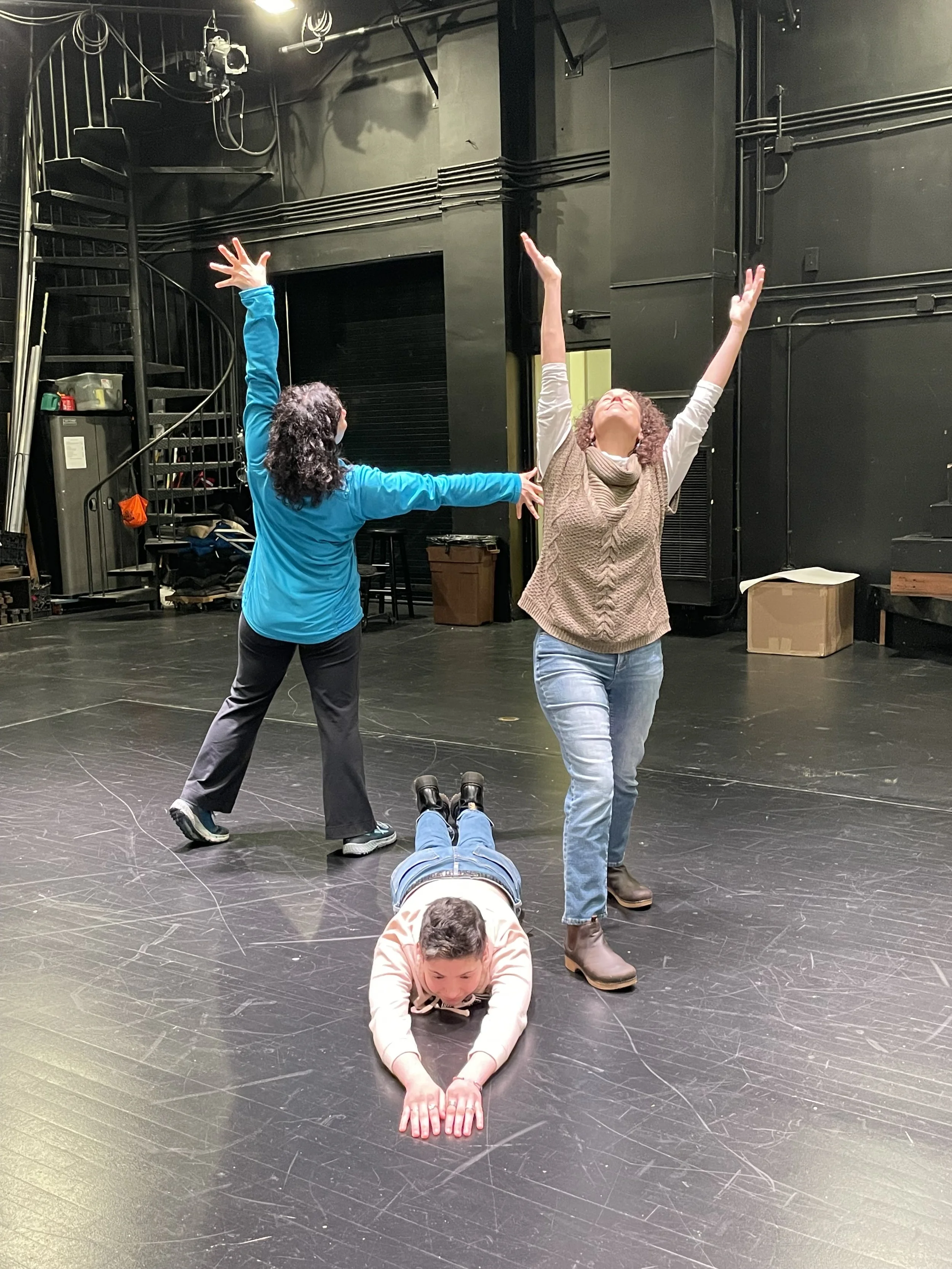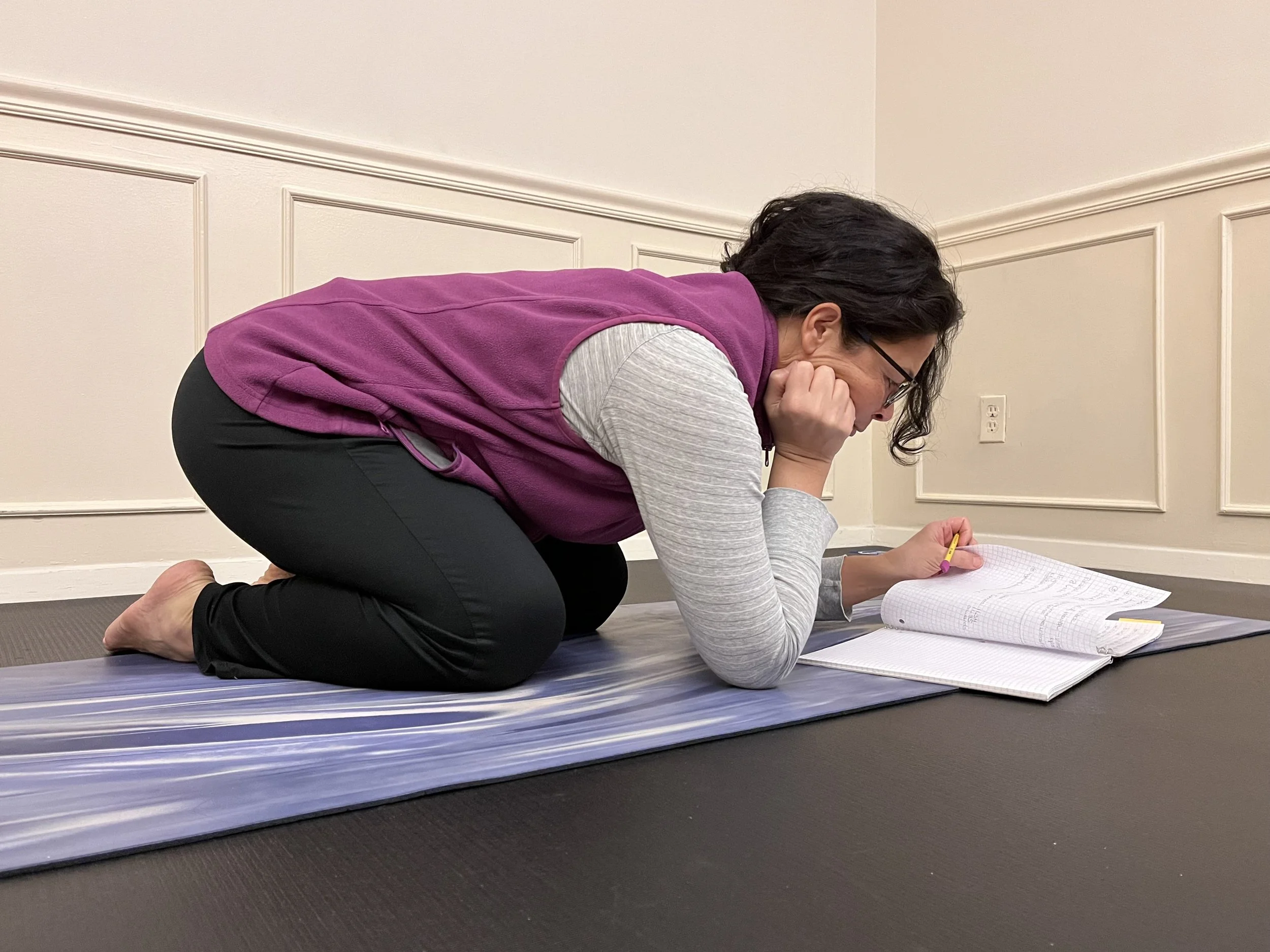the movement
honor ancestors, serve descendants, nourish all
Listening As Our Stories Unfold?
Each morning as I move on my mat, I fold, unfold and I listen. My skin, muscles, joints, and bones all have plenty to tell me. I use my breath to keep the narrative coming. I exhale when it feels like I am at an intense point in the chronicle, and I inhale gently and deeply when it feels like there is space. My body-mind complex is telling the tales of the previous night of dreams and sleep, and of the activities of the days before. More often I recognize parts of the story as if they were verses of long sweet songs sung over the 46 years I’ve been with this body.
It’s taken me the better part of a 24-year consistent yoga practice to delicately attune to the story that is unfolding within me. Luckily, that same practice has also made me a better listener to the world beyond my personal space. I have become aware, and am grateful for, the privilege to bear witness to stories of other people.
Life’s weird and winding road landed me in a theatre rehearsal in Reston Virginia. I’m in the role of understudy. The theatre piece, Generation Rise: Reston, an interview-based production, is co-created by professional artists and a collection of local teens and adults. The performance weaves together their stories using personal reflections on challenges and joys of growing up in Reston during a time of pandemic and global upheaval.
It is an honor to be a part of this creative process. I am inspired as I listen to caring brave human beings share of themselves in our generative process. My heart is nourished to hear the observations, memories, and epiphanies of each cast member. Magic happens as the threads of human experience are woven by the playwrights into the fabric of the full production.
Photo: Cast members of Generation Rise: Reston in the middle of a warmup game.
To truly listen to others, we must quiet any distraction in our own mind. Let me offer you this overview of how we might end up with unwanted noise in our mind, more importantly, how we can return to a quiet mind using the physical body as our discussion platform.
Part 1: A quiet mind going about our lives.
We each have a unique skeletal structure and the ways in which we have used our body over time creates neuromuscular patterns. Our bones and muscles reflect that patterning. We may have a “go to” arm for pulling open heavy doors, or a preferred leg for kicking a ball. There is no right or wrong in these actions that have been part of our existence for however long we’ve been on the planet. They just are part of the body-mind complex story.
Part 2: Imbalance
There are times when these patterns can create discord. One muscle or group of muscles gets overactive or tight. Another set of muscles are under-active. This results in an imbalance that may cause malalignment in a joint or a pinched nerve. The result is we feel pain.
Part 3: Here comes the noise.
From personal experience of pain and my yoga studies I’ve learned that when we are in pain it sounds a like a loop in the mind that overrides all other sounds. It is a persistent, repeated, speeding thought. As if there is one sentence being spoken over, and over, louder, and louder, faster, and faster.
“Ouch! My knee! Ouch! My knee! Ouch! My knee! Ouch! My knee! Ouch! M..”
In this state it is near impossible to hear anything other than that one thought spinning in our mind.
Part 4: The good news.
The good news is all sensation in the body-mind complex is there to help guide us. We have the opportunity to bring our awareness to any sensation and respond.
Part 5: Breathe to make space.
If we pay attention to the locus of the pain and purposefully breathe slowly, we start to create a tiny space between the repetition of the single sentence/thought.
“…Ouch my knee …. Ouch … my knee … my knee … my … knee … … … ”
Sticking with the slower breathing, those spaces between thought repetitions expand. The grip that the speeding, spinning noise once had starts to diminish. We ease out of the panic of pain and start to access what can be done to respond to the situation. With the freedom of a quieter mind, we can go about the intuitive, intentional listening process of healing ourselves.
I’m sure each one of us can give examples of a sentence on loop making a racket in our mind. Issues may stem from physical, psychological, psycho-social, or spiritual situations. Regardless of what the loop is, healing starts the same way: breathe slowly to quiet the mind. We humans are wired to be in community. We are not designed to be alone caught in a blare of a persistent, uncontrolled, speeding, spinning thought loops.
Photo: I often use a variation of balasana (child’s pose) to write in my notebook. Body mind complex folding and unfolding.
To be in community, we have to make space within. We have to find our quiet mind to hear each other. Long before there were smart phones and social media scrolling, before TV, before radio, even before written books, there were humans sitting in the circle, around a fire, telling stories.
Perhaps you have a method of quieting your mind. I offer a deep bow of respect to whatever way you have found that works for you. Perhaps you are seeking a way. If like me, you are all ears for all the ways to find a quiet mind and expand your listening skills I invite you to explore these two offerings.
1. Join us for storytelling. Real people telling real stories. Generation Rise: Reston runs two nights only on March 24 and 25 at the Reston Community Center. https://restoncommunitycenter.com/event/generation-rise-reston/
2. Get on your mat, fold, and unfold your body-mind story one breath at a time. Join us for breath and movement practices on Tuesdays and Thursdays in March.
I’m grateful to be in the rehearsal room with the cast and crew of Generation Rise: Reston. I’m grateful every week to see you fold and unfold in our movement classes. I’m grateful to ALL of you for listening to your fellow humans. The act of quieting your mind and truly listening is the choice to be in community. That choice is to be human. Thank you for your humanness.
March 2023



